These past Christmas holidays, I have been thinking of what jobs could possibly be a good option for me to do next, once I realized AI has washed my whole profession (software development) away.
I admit this may sound quite melodramatic. Indeed, how can our whole profession be doomed? Less than two years ago, we were still following the tail of a software-driven society popularized by that famous «software is eating the world» article from Mark Andreessen, back in 2011. What just happened with that?
Well, AI happened.
Sure, we may be a software-driven society, but it is clear that AI is in its way to become in charge of producing and operating that software. Very soon, humans will be ancillary to AI at most, when not superfluous.
For, if one thing we all learned in 2023, the Year One in the Age of AI that formally started on the 30th of November, 2022, when OpenAI made ChatGPT generally available, is that AI is moving forward with the fastest pace we have ever seen.
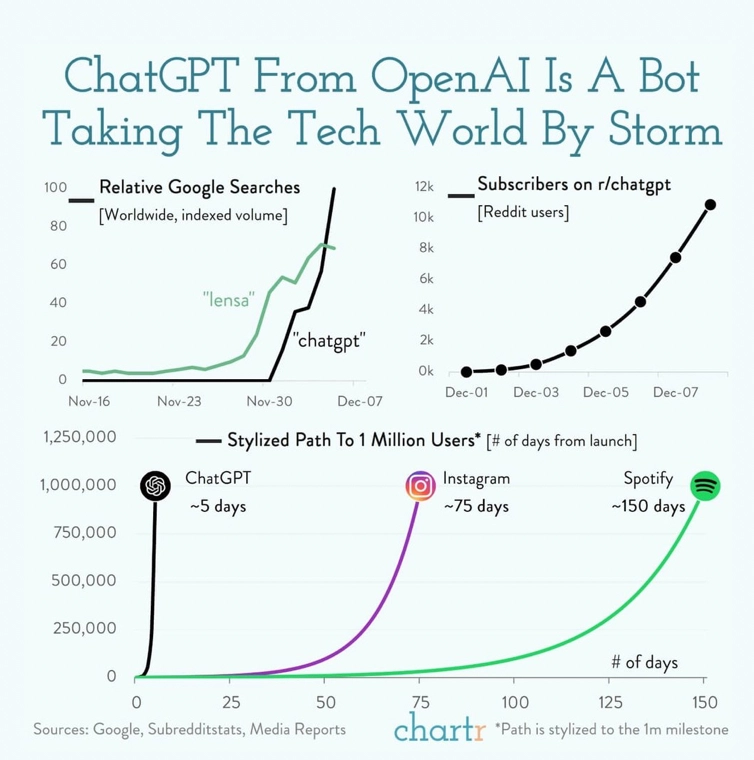
How long until AI replaces the first half of the current population of software developers?
Whatever answer to that question would be highly speculative. However, the past twelve months have already proved that seeing humans writing code is a picture of the past. Wherever we are still seeing it today, it is just due to inertia.
Writing code is the easiest software engineering task for AI to take over because it does not require comprehension. More important software engineering tasks, like designing the architecture (i.e., how software is divided into components, and how these components will communicate with each other, and collaborate), systems thinking, and critical applications require comprehension, a skill generative AI cannot offer. Hence we can assume they will stay in human hands a bit longer.
Strictly speaking, then, I guess that AI will not replace all humans in software engineering, unless new breakthroughs in AI capabilities occur. There are other tasks involved in creating software applications, deploying them to the infrastructure upon they will run, and monitor them while running. But inspecting (writing and, more often than that, reading code) is the major task developers do.
All in all, I find it very likely that around between one half to two-thirds of all current jobs in this profession, roughly speaking will vanish in less than five years.
Now, considering there is an estimated population of 27 million software developers in the world, 15 million of jobs lost is not that much, right?
The AI Takeover and Employee’s View of It
We all agree that AI’s disruptive power in those industries wherein human workers have very little leverage to protect themselves is enormous. I have already watched videos showing how companies can downsize their design team at a rate of 3 to 1 just by using the AI tools released in 2023.
That is 66% of jobs washed out. Notice this is where the two-thirds I mentioned above comes from, and I find this figure very reasonable.
Workers in other industries can exhibit a greater capacity to resist. As an example, there is the deal the Writers Guild of America (WGA) and the Hollywood companies signed in 2023, which explicitly states that:
The Companies agree that because neither traditional AI nor GAI is a person, neither is a ‘writer’ or ‘professional writer’, and, therefore, written material produced by traditional AI or GAI shall not be considered literary material under this or any prior deal
WGA Contract 2023
So, Companies cannot use AI to replace human writers. Ironically, though, writers managed to be granted the right to use AI themselves to assist them in their work:
When a writer, with the consent of the Company, uses GAI in the course of preparing written material or incorporates GAI-produced material in written material, such written material shall be considered literary material and not material ‘produced’ by GAI
WGA Contract 2023
Notice that GAI in those quotes above stands for Generative Artificial Intelligence, the kind of AI that ChatGPT is the best-known example of.
Some people see this structural shift as a very powerful enabler for people who have been somehow excluded from participating in social endeavours that so far required specialized skills (meaning, expensive to acquire), background, or both.
For example, John Roberts, head of the US Supreme Court, wrote this as part of the 2023 Year-End Report on the Federal Judiciary:
Proponents of AI tout its potential to increase access to justice, particularly for litigants with limited resources. Our court system has a monopoly on many forms of relief. If you want a discharge in bankruptcy, for example, you must see a federal judge. For those who cannot afford a lawyer, AI can help. It drives new, highly accessible tools that provide answers to basic questions, including where to find templates and court forms, how to fill them out, and where to bring them for presentation to the judge—all without leaving home.
John Roberts, head of the US Supreme Court
I highly recommend reading Judge Roberts’s primer in full. It is only 6 pages long and provides a different, not technology-biased, view on AI disruption.
To be honest, others within my field expressed similar, future-optimistic opinions about the end of humans being in charge of programming software. The fact that everyone in the world will be able to produce software applications just by asking AI tools, with no technical background needed whatsoever, has to feel great. In particular, for those who started up a company founded on building tools to deliver that exact promise.
IMHO, these messages, and others alike being broadcasted by entrepreneurs, book writers, politicians, etc., are nothing more than the usual pleasing communications you would use to smooth the transition that guarantees your position stands whereas millions of jobs become obsolete.
I believe all humans deserve the right to be treated as adults who can withstand this inevitable shift responsibly.
Anyway, I don’t see software engineers organized in such powerful ways as the Writers Guild of America. Or judges and lawyers. So, long story short, the end is nigh for us.
That said, in all possible scenarios, the AI Takeover will take time. I believe my job is reasonably safe until next September at the very least. I assume it will be after these next two quarters and the summer holidays, that organizations will have learned enough about AI capabilities to launch a quick, widespread replacement operation. By that time, consultant firms, advisors, and the leading companies in the world (i.e., GAMAM et al.) would have shown the path to follow them as well.
Unfortunately for me, I have more than 15 years to go until I reach the legal retirement age in Spain, so I really have to think further than the next 9 months.
What to do next, then?
New endeavours for humans to pursue
Overall, the Age of AI means that ensuring they have an ever-increasing number of humans is not needed for countries and organizations to thrive anymore.
So, no matter the software engineer’s, or my own personal, troubles, there is a broader question in the air, which is, what will we do with 9 billion people on Earth when AI Takeover is complete?
Big projects, like the colonization of other planets and satellites in our Solar System, have already, and conveniently, kicked off. The colonization of the oceans might be another viable challenge to invest people in.
Those above and similar projects do not seem to require more than a few million people. Will everyone else turn into an artist, a nurse, or a gym trainer?
That prospect is less silly than you would think. Interestingly, and unrelated to the emergence of AI, there is a trend in Western societies against living our entire lives embedded within digital tools. The generation who did everything on their mobile phones is being followed by the youngest one who would rather spend their time with other humans in the same physical spot.
Instead of living through software, they are pushing software off the spotlight. In other words, software mainly created, provisioned, and operated by AI, will ultimately fulfil the promise of Marc Andresseen and govern our societies. But it will do it silently, in the shadows, limiting its exposure to humans as much as possible, with the only purpose of preventing us from the feeling of being governed.
Yet, and in the same way that I am confident my job is dead in less than five years, I also believe that this far future lies more than ten years ahead. So, I cannot use it to decide my next step.
Should I exploit my past experience and background, and continue with my career in a related field, with properly (and significantly) reduced salary expectations?
Or, should I start afresh, build my personal brand, and do something completely new?
And, most importantly for you, what will you do when the AI tide comes to you? And, oh, it is coming!
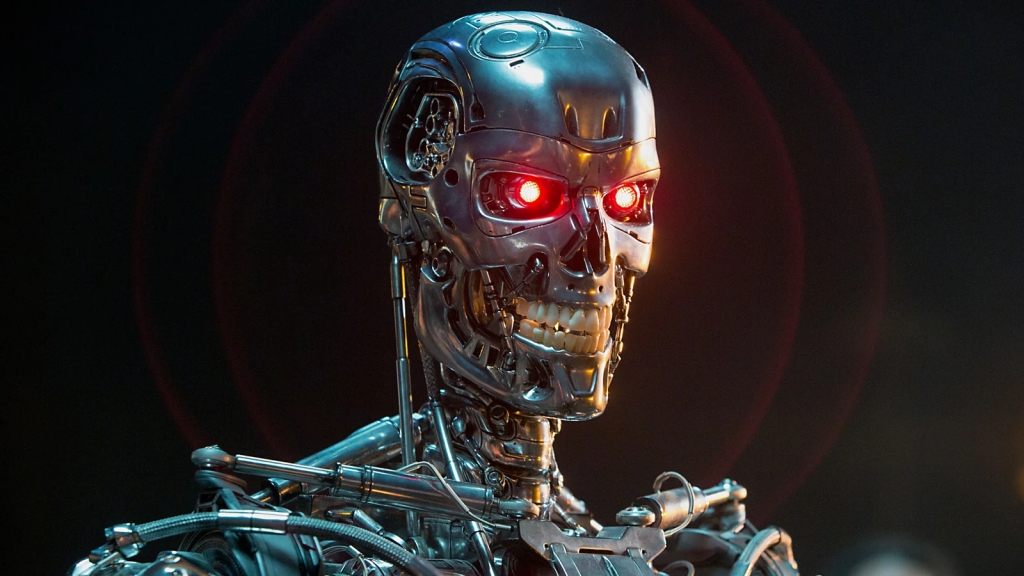
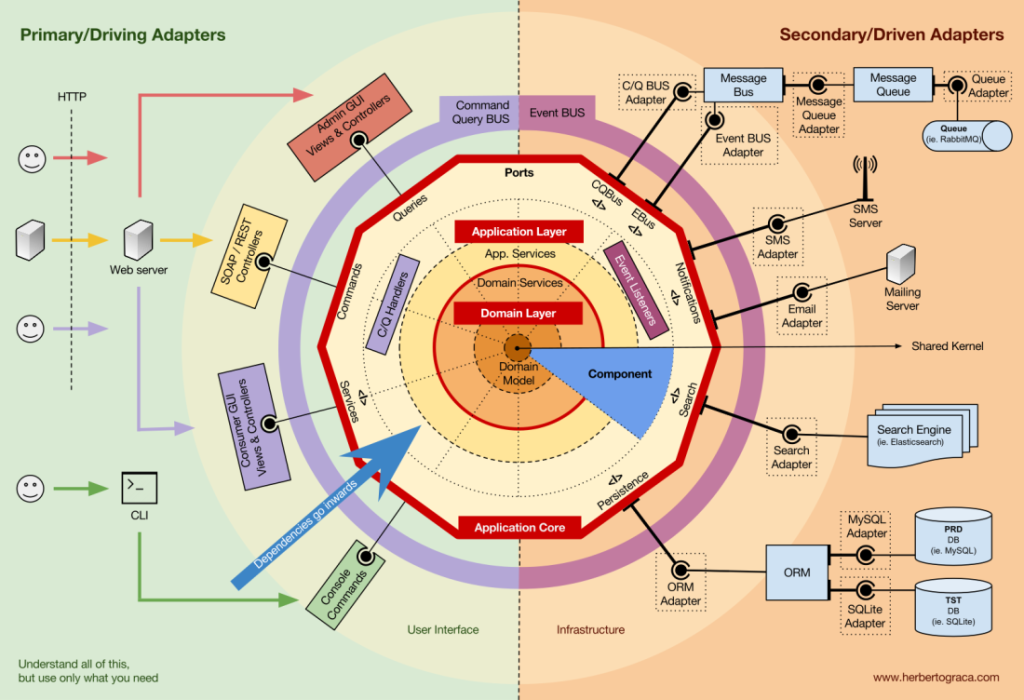
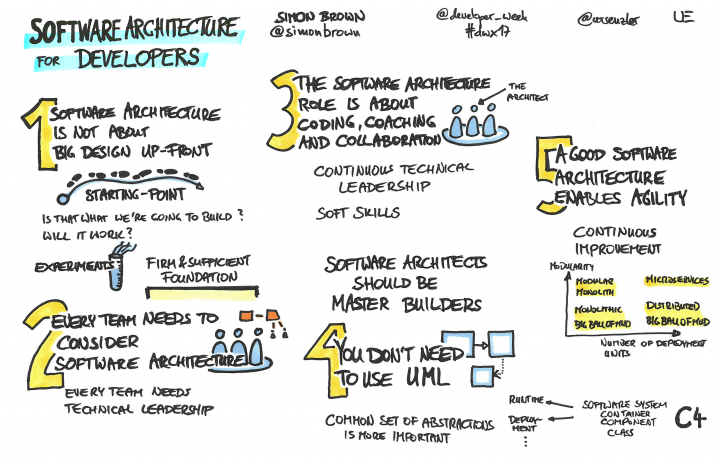
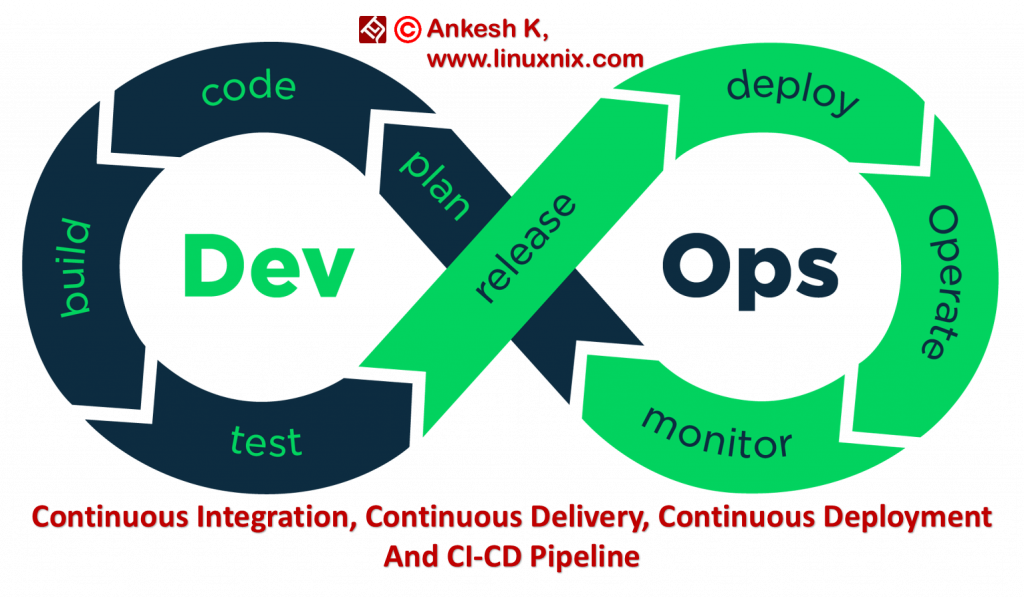
Deja un comentario